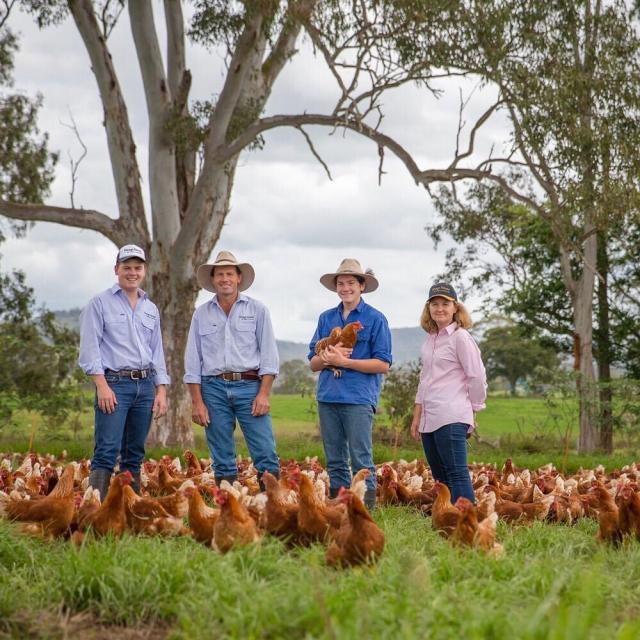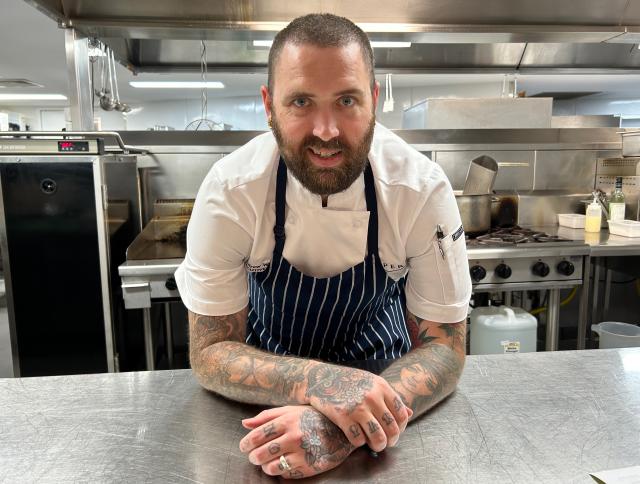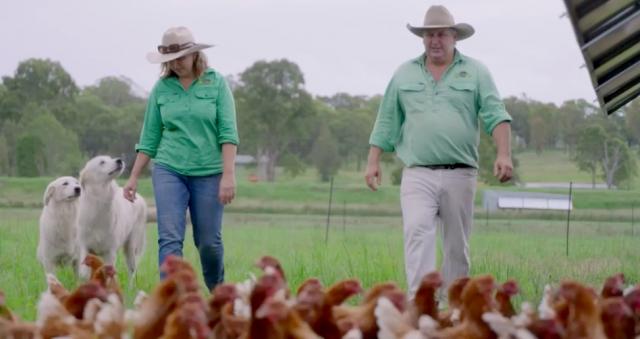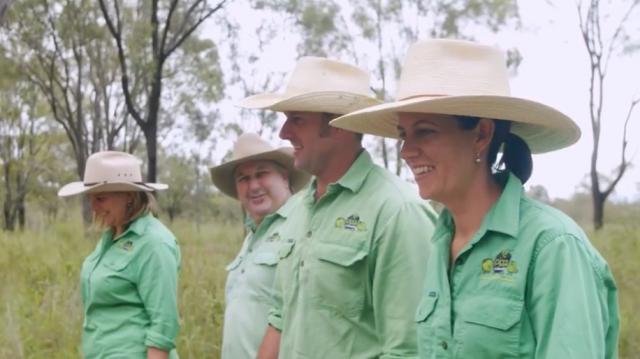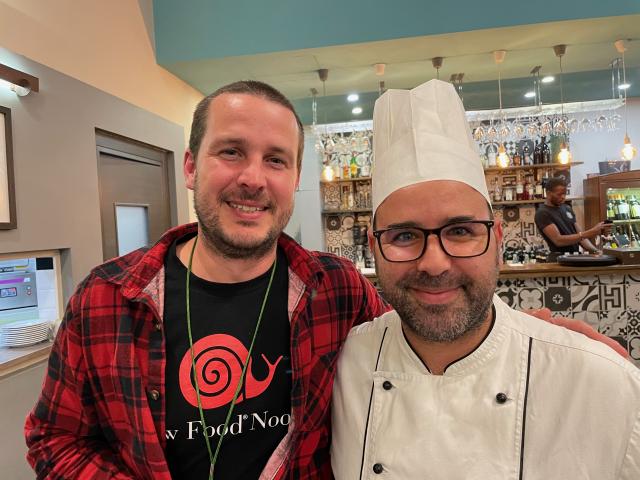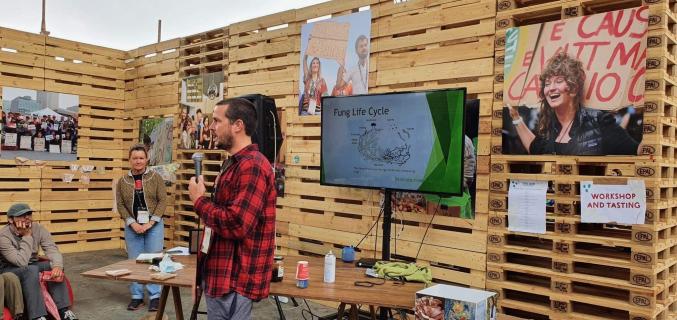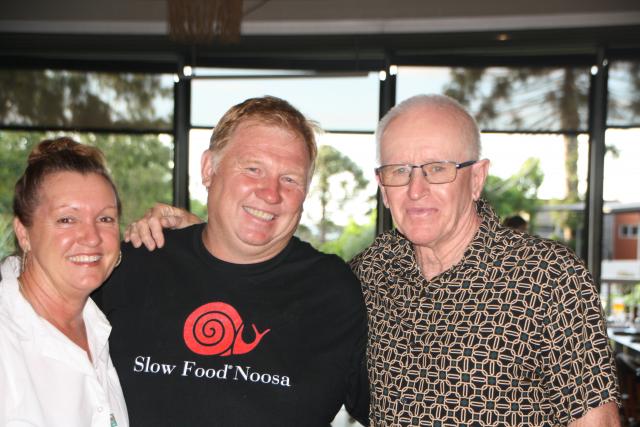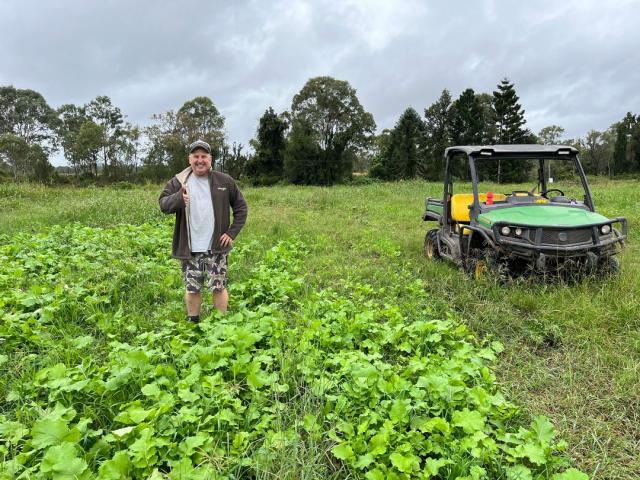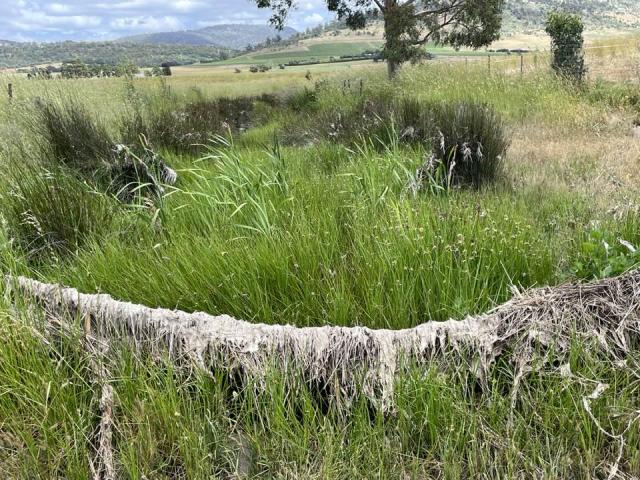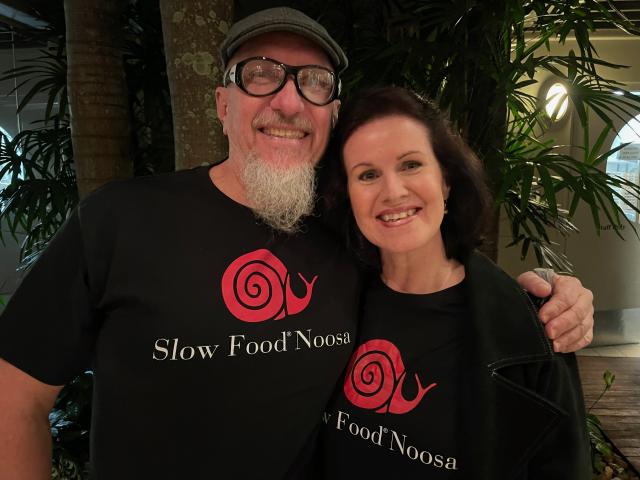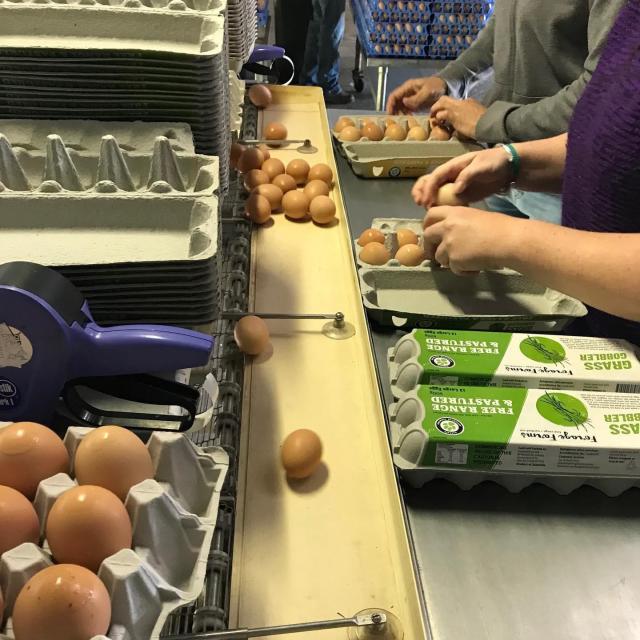Slow Food dinner to recognise Gympie, Noosa producers and providers as momentum builds for 2023. ERLE LEVEY takes a look at what is on offer.
“It’s a matter of knowing where your food comes from. We have seen that supply chains can disappear overnight. Build a relationship with your local farmer and know how they grow their food.’’
It’s the chance to meet and support the farmers, producers and suppliers from the Noosa and Gympie regions who put good, clean and fair food on our tables.
Slow Food Noosa president Jason Lewis said it would be a night of celebration on Monday 20 March, when members and friends welcome the 2023 Snail of Approval recipients.
The evening is in recognition of the quality of food and produce available, whether at the farm gate, community markets, retailers or on the plate at restaurants and cafes.
“Here is the opportunity to meet with our amazing farmers and producers and enjoy an outstanding dinner from local produce created by the dedicated staff at View Restaurant at Peppers Resort Noosa,’’ Jason said.
“The bespoke dinner includes a three-course meal, and beverage on arrival supplied by Amrita Park Meadery.
“Head chef at View Restaurant, Andy Wilcox will be sourcing the freshest local produce available so expect a treat for the senses.’’
A local producers’ expo will be set up at 5pm prior to the dinner, which again provides the chance to get to know the faces behind the farms.
Slow Food Noosa delegates who attended the Slow Food International food festival – Terra Madre Salone del Gusto in Turin, Italy, last September – will be present at the night.
Historically the strongest delegation from Australia, included were Jason Lewis, Noosa school teacher Di Seels, Scott Andrews of Tagigan Road Produce at Goomboorian, Andy Coates and Nicola Cleaver of Amrita Park Meadery at Pomona, and University of the Sunshine Coast associate lecturer in business and creative industries, Melissa Innes.
As media delegate from Queensland, I found the food festival absorbing, entertaining, highly informative and essential in its content as well as ambition.
What it highlighted was the need to choose good, local food and in doing so contribute not only to good health but supporting the local economy.
An economy based on food and creative past-times in which money circulates within that community rather than being lost to outside interests.
That helps to ensure the the stability of the community, and the goods and services it can offer.
“It will be a celebration of new and existing Slow Food Noosa members who are doing so much to put Noosa and the Gympie regions on the map as far as fresh, quality food grown and produced right here,’’ Jason said.
“The dinner signifies the momentum that is building this year.
“It’s an opportunity to get all the producers together and recognise these efforts This is also an opportunity to get all the producers together, and meet View Restaurant head chef Andrew Wilcox who will tantalise taste buds by utilising food from among our producers.
“Members and guests will get to learn and know who our producers are, and discover the quality we offer here.
“It’s good for the farmer because they can get their product out there, but also good for the consumer as they can make an educated choice … am I going to buy my tomatoes from the market, from the grower or from the supermarket?
STANDING UP FOR LOCAL PRODUCE
The critical point is about utilising slow local food here, in our restaurants and cafes for the local people to be able to enjoy it.
It’s a driving force of what is being sought with a Snail of Approval – that suppliers and businesses are proud to display the fact they are using local produce.
The three-course dinner with choice at View Restaurant will basically be 90 percent local.
Andrew Wilcox is a Noosa local and has been at Peppers Noosa for eight years.
His biggest learning curve was having worked with highly-regarded professional chef Matt Golinski for five years.
Matt has a passion for creating cuisine with fresh, seasonal and local ingredients.
“He’s a friend of mine so I’ve been learning with him,’’ Andrew said.
“Working with him and getting to know all the different suppliers has really helped me personally.
“And just getting out to meet other people and expand my horizon with farmers.
“Not just the food knowledge but finding out the story behind them – where everything comes from.
“That’s probably been the biggest thing in the past five years.’’
While Matt’s gone to follow some new things, Andrew admits it’s now up to himself to find some more suppliers.
“I’ve always liked looking after all the locals – as Matt has – and I’m going keep that tradition going with the new menu that we have got coming out.
“There will be some different things and we want to continue his legacy.’’
Andrew has lived in Noosa for 34 years and is third-generation Tewantin – initially from Moorindil St but is now living at Eumundi.
“So my kids are fourth generation.
“Being born here, it’s fascinating to find out how many different farms are around us.
“We’re very fortunate as to what food is available. It’s a matter of getting more people to understand that.’’
The Snail of Approval dinner will comprise an entree of Piggy In The Middle pork belly with caramelised Suncoast limes or an alternate drop of Mooloolaba prawns with avocado mousse and Green Valley fingerlimes.
For the mains there is Forage Farms pesto chicken breast, baked mozzarella and a red tomato salsa.
Otherwise there is Eastwell Farms sirloin with Tagigan Road mushrooms, potato gratin, and red wine jus.
After that is the chocolate brownie with Cooloola Berries sauce and chantilly cream, or the tiramisu with Noosa Black coffee.
OVERCOMING CHALLENGES
For Kilkivan producers Piggy in the Middle, the objective of Mason and Krystal, Dean and Kate Mayne, has always been to employ ethical farming principles and practices.
Primarily, this applies to the way they treat their animals and the land they farm.
As regenerative farmers they utilise farm management systems to improve their land.
This involves using our animals to graze in the same way that animals do naturally. Eating and foraging in one area, before moving on to another, fertilising, aerating and improving the topsoil as they go.
Dean Mayne said farming was forever challenging.
One of the biggest lessons learned in the past seven years has been you cannot do everything.
“It’s often best to do less … and better.’’
After last year’s damaging floods the two families had to rebuild the farm, the fences and the roads.
“There were some stock loss and it was pretty hard there for a while,’’ Dean said.
“Other than that it’s been awesome.
“We’ve created some new markets within our Gympie, Sunshine Coast and Brisbane catchment.
“It was an amazing winter and that set things up for summer.
“The heat has been stressing out the chooks, but it’s simply a matter of keeping the water up to them and keeping them cool.
“The pigs love it … they’ve always got mud holes.’’
The philosophy at Piggy in the Middle is to provide their animals with the best life possible.
In turn the animals improve the condition of the land.
Their aim is to produce chemical-free products that are of the highest quality, that are better nutritionally, and that have great natural flavours.
Using ethical farming practices is more difficult and labour intensive but more satisfying and produces a much better environmental outcome.
The farm was set up in 2016 and by moving the animals around the farm they started to see the benefits for them and the land.
Their business was built up at farmers’ markets but now is more interactive for customers with drop-offs or pick-ups.
The pigs are raised on pasture, and are heritage bred, creating more flavour.
The animals are processed on the farm. The sausages are preservative free and by using a smoker they can provide nitrate-free bacon and smallgoods.
“We are getting a lot more restaurants looking for clean, wholesome, free-range, pasture-raised food that is local,’’ Dean said. “They really want to know the farmer.
“A lot of the chefs come out to the farm and see what it’s all about and then update their staff on it.’’
THREE GENERATIONS OF FARMERS
At Forage Farms, right in the heart of the Mary Valley at Kybong, the Andrews family live and breathe regenerative farming.
They have been farming regeneratively for three generations. Peter Andrews, Stuart’s dad, is the pioneer of Natural Sequence Farming (NSF).
Stuart runs courses in NSF via their business Tarwyn Park Training.
While Stuart and Megan’s boys, Hamish and Lachlan, work full time at the farm and in their training business, learning from their dad and Grandad to improve their land. Hamish and Lachlan run regular farm tours.
I spoke to Megan on the phone from Tasmania, where they were running a natural sequence farming field day at Ripple Farm, near Richmond.
“They did our training course in New South Wales years ago and have been waiting for a chance to have us do a walking tour of their farm and and advise on contour ploughing to slow the flow of the water from the land.’’
Saying that, Forage Farms fared well in last year’s flooding of the Mary River.
Due to the forward planning of paddocks, most of their animals were on the high ground while cattle were moved up from the river flats.
“It was fairly busy for a while though,’’ Megan said. “It’s amazing what that bit of land can cope with.’’
The production of eggs at the Forage Farm is going well, Megan said.
While the disruption to transport from Covid and the flooding impacted major retailers, it was the local farmers such as Forage who kept produce on the shelves at the smaller, independent outlets.
They have been building the meat chickens and beef side of the business, and that has been well received.
A farm store is operated by appointment, but most produce is sold on-line and clients can choose whether it’s to be a farm pick-up or delivered by courier to the door from Gympie to the Gold Coast.
Greater rotation of crops and animals on the farm is working well, Megan said.
“It’s important to have biodiversity of animals and plants to keep everything ticking along.
“Managing the hydrology of the property is important for us … slowing the water down and utilising it and the nutrients rather than losing it out to sea.
“You are filtering that water in the process.’’
Megan said it was important to support local farmers.
“It’s a matter of knowing where your food comes from.
“We have seen that supply chains can disappear overnight.
“Build a relationship with your local farmer and know how they grow their food.’’
Slow Food’s night to celebrate Snail of Approval recipients raises community awareness about what is needed to ensure communities are founded on good, clean, fair food and environmental practices.
Isn’t that something we should all aspire to?
SNAIL OF APPROVAL
In 2017, Slow Food Noosa launched Australia’s first ‘Snail of Approval’ program after delegates visited Italy for Terra Madre Salone del Gusto the year before.
The program is to recognise local participants in the global Slow Food philosophy of ‘good, clean and fair’ food.
It continues to attract a diverse range of producers and food artisans; restaurant owners and chefs keen to be part of a global network actively working together and towards educating and engaging consumers on the benefits of choosing fresh, local and seasonal food with a focus on fairness.
The program features a snail logo that provides a quality assurance guide for clients and customers.
It also encourages stronger networks and relationships with producers and outlets including cafes, restaurants and retailers.
The program currently has about 80 recognised Snails from Caloundra to Gympie involved in food production, creation and directly selling to consumers.
Businesses can be recognised if they are making efforts to produce food which is good, clean and fair.
GOOD: seasonal, local, quality, flavoursome and healthy food
CLEAN: sustainable production with low impact on the environment
FAIR: accessible prices for consumers and fair conditions and pay for producers and staff/workers.

